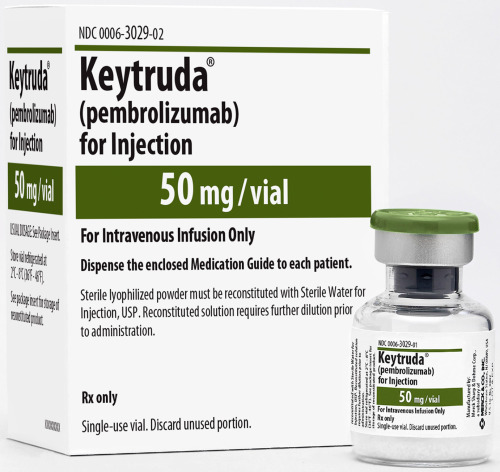Keytruda in new lymphoma use leads latest CHMP decisions

Merck & Co's Keytruda cancer immunotherapy is continuing its game of catch-up with Bristol-Myers Squibb’s Opdivo, after receiving backing in a new blood cancer indication from European regulators.
The European Medicines Agency’s CHMP scientific committee recommended approval for Keytruda (pembrolizumab), for adults with relapsed or refractory classical Hodgkin lymphoma, who failed autologous stem cell transplant and treatment with Takeda’s Adcetris (brentuximab vedotin), or who are transplant ineligible and have failed Adcetris treatment.
Bristol-Myers Squibb’s rival anti PD-1, Opdivo got its EU licence in this in November, adding to a growing list of uses.
Merck & Co, known as MSD outside the US, is playing catch-up with Opdivo after getting to the market later.
But Opdivo is crucially without the lucrative first-line lung cancer indication after failing in a phase 3 trial last year, while Merck’s rival has been approved in this use on both sides of the Atlantic.
The CHMP’s recommendation means Keytruda is likely to gain final approval in the next few months.
The CHMP also recommended a label update for Novo Nordisk’s Tresiba, which is in a fight with Sanofi’s older Lantus.
The committee recommended included data from the SWITCH 1 and 2 trials, where Tresiba demonstrated clinically relevant reductions in hypoglycaemia compared with Lantus in people with type 1 and type 2 diabetes.
In its Friday meeting the CHMP also recommended six new medicines for approval, including three rare disease drugs.
Apeiron’s Dinutuximab beta Apeiron got the nod for high-risk neuroblastoma in children and adults, as did Novo Nordisk’s Refixia (nonacog bet pegol) for haemophilia B, and bene-Arzneimittel’s Elmiron (pentosan polysulfate sodium) for bladder pain syndrome.
Pfizer’s Trumenba meningitis B vaccine, Blue Earth Diagnostics’ prostate cancer imaging product Axumin, and the generic ivabradine for chronic heart failure, also got the go-ahead from the CHMP.
All decisions will be passed on to the European Commission, which will likely grant marketing authorisations in the coming weeks.











